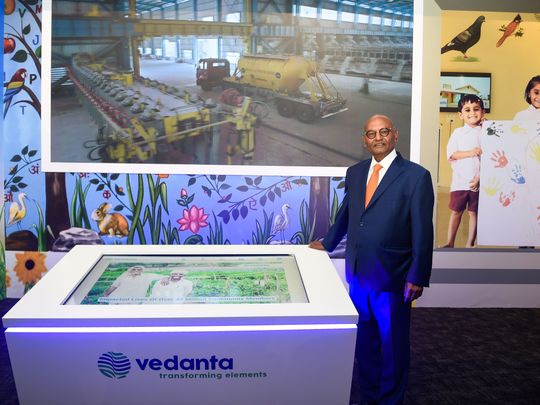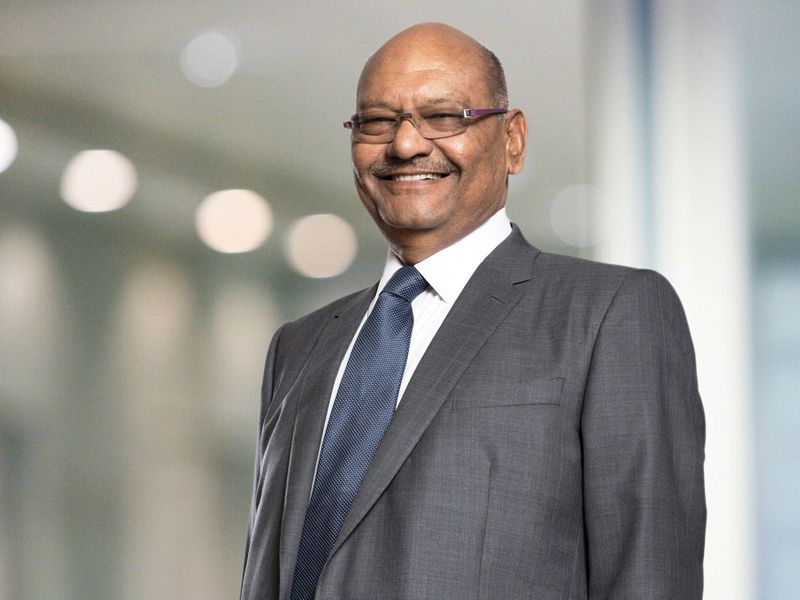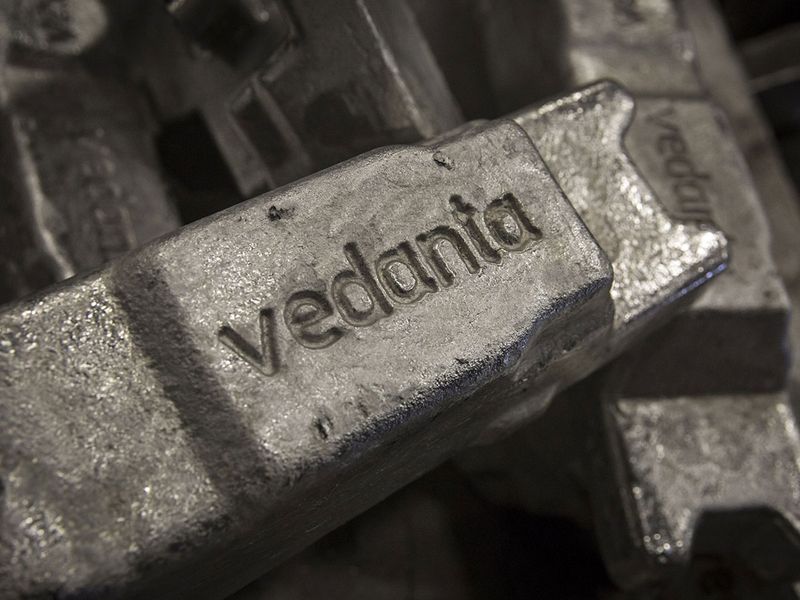
Dubai: A company with its origins in India – but headquartered in the UK. A global mining and minerals behemoth with extensive interests in Australia and a growing presence in southern Africa. But when it comes to the UAE, it’s kind of light on the ground.
Anil Agarwal, founder and Chairman of the $11 billion plus Vedanta Resources Ltd., wants to work out a plan that will see the company – or one of its many arms – expand its scope in the UAE – where it has gold refinery in Fujairah - and wider Middle East. On a visit to the UAE to be part of the India Pavilion at the Expo, Agarwal sets out his priorities for the region – and how he plans to go about making them happen.
There has always been talk about the Group planning something big in the Middle East’s oil and gas or minerals’ space. Anything concrete likely to happen?
Anil Agarwal: We are seeing that all the large companies in our sector - whether it is Schlumberger or Halliburton - are developing in this market. Doing business in the UAE is much easier; technology-wise it is much advanced and probably will be less expensive.
I would say to do a deal here in the UAE, makes good sense. The UAE is a central point for the entire Middle East region to trade in oil and gas.
The Fujairah gold refinery - is that still a strategic fit for the group? If you had a wish list, is there any other category you might consider an exposure in the UAE or Gulf?
Yes, absolutely. We have earmarked $20 billion for global investments; some of it will be invested in the UAE. We are looking at large companies that we can partner with for our oil and gas exploration projects in India.
We would like to expand in the UAE and gain expertise and technology for projects in the region - and in India. We also plan to double the capacity at our gold refinery in Fujairah.

Would you agree Vedanta is overweight in some geographies? Is it something you plan to address?
In the natural resource business, place of origin is always important. If you look at BHP, they'll say they are from Australia; if you see Vale, they say they are from Brazil; Rio Tinto says they are from England.
Even if you ask British Petroleum - which has only 7 per cent of its business in the UK - they say they are a British company. So, origin is very important. I'm very proud to lead an Indian natural resources company - we are sourcing globally and supplying globally.
Yes, we are overweight in India. I would like to hold on to our roots. I'm very proud of our Indian origin.
The volatility on metal supplies and prices – is now a time for a 'half full-half empty' perspective?
Metal prices are a function of global demand and supply. As a business one must focus on variables that can be controlled such as volume and cost. If you ask me about medium-term, I only see demand for metals growing. And supply may not grow at the same rate because exploration declined during the pandemic.
Would you consider the ongoing market disruption for a diversification?
We are looking at many opportunities: one is to tie up sovereign wealth funds to invest in the oil and gas exploration opportunities in India. India is blessed with a huge domestic market and energy demand will only go up.
Currently, India produces 15 per cent of its energy demand and we need more investments in oil and gas expansion. We have received interests from sovereign wealth funds. This will be the most profitable sector for them to develop their business and deploy their fund.
We have two parts in Vedanta, one is our natural resources business including oil and gas; [and] we are the largest producer of aluminum, copper, zinc, silver, iron and steel. The other part is to provide high-end solutions to high-tech companies.
We have the largest fibre optic production and will play a big role in 5G deployment in India. Both sides of businesses have huge potential.
My vision for this company is that it’s going to be an institution, which is going to last 500 years or more. Vedanta has a 100,000 strong team and most of the wealth has to go back to the society. For me,
I am looking at the 80 million children, 20 million women in India and across the world, particularly in Africa that we support through my Foundation. I definitely look at how children have to be very strong as they grow up with an Indian mind with strong upbringing that will definitely help the world. This is what I'm going to do in the future.

The India Pavilion tie up - a prelude to a wider regional visibility?
This is one of the world's best Expos, which the whole world is going to look at today. It is a chance for Vedanta, to showcase what we are doing.
So that was our main objective, and we had the opportunity, because there's a huge relationship between the UAE and India. We have always been together. There is an abundance of culture, oil and gas, metal mining, anything you talk about.
It was a great opportunity for India to come and make a pitch in this Expo. Vedanta’s story is directly linked to the India story.
We are totally committed to India. We have plans to invest $3 billion over the next few years. Since 50 per cent of India’s imports are on account of natural resources, it is our duty to help plan for import substitution, produce more energy in India and create much needed jobs.








